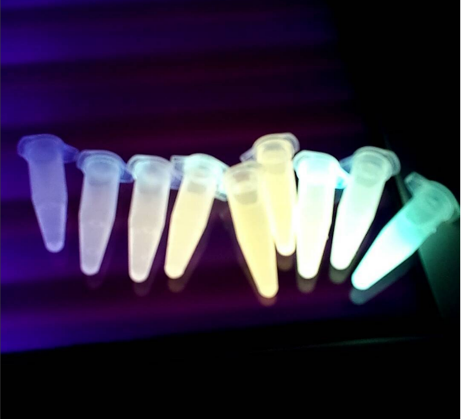Blog

Meet a Scientist: Mondraya Howard
All of the researchers featured on our Meet a Scientist Saturdays have been trained through Phipps’ science communication workshops. If you are a young professional or graduate student in the sciences and you are interested in the workshop or participating in a Meet a Scientist Saturday, check out our website.
This Saturday, April. 21, Phipps Conservatory is excited to host a local researcher for our monthly Meet a Scientist series. Come meet Mondraya Howard, Ph.D. student from the University of Pittsburgh. Mondraya will be in Palm Circle of the Tropical Forest from 1:30-3:30 pm and is ready to tell you all about her research and stories from the lab!
Introduce yourself in 5 sentences or less
My name is Mondraya Howard and I am a PhD student at the University of Pittsburgh. I grew up in Minnesota, the land of 10,000 lakes and really long, really cold winters. I am a fifth-year graduate student in the lab of Dr. James Bina where we study how the bacteria Vibrio cholerae causes disease in humans. I spend most of my time in lab but with my free time I enjoy running, yoga, and making pottery.
Why did you become a scientist?
I have always liked science, I grew up watching Bill Nye the Science Guy and Zoom; my sisters and I spent many Saturdays recreating the experiments that were done on these shows. However, I did not know I wanted to be a scientist until high school; in my junior year I took chemistry (my teacher was absolutely wonderful) and that was when I really fell in love with science. I enjoyed chemistry because it just made sense and decided to pursue it for my major in college. As an undergrad, I had to opportunity to do research on viruses and decided to go to graduate school to continue my education.
What is the most exciting thing you’ve ever done at work?
The most exciting thing I’ve done was when I was able to use my chemistry background in an experiment. I created a fluorescent probe to study how a compound created by the body to defend against bacterial infection binds to the Vibrio cholerae cell surface. To create the probe, I mixed two chemicals and allowed them to react. The mixture was collected in small volumes to separate the unreacted chemicals from the reacted product (these compounds can be separated by their color). Each volume collected fluoresced (or glowed) a different color and in the end I had a rainbow of glowing tubes.

What skills do you use at your job?
Science requires organization, critical thinking, and communication. As graduate students, we are expected to design experiments, take classes, teach, publish papers and attend conferences. Having all of these responsibilities requires time management and organization in order to get things done on time. Critical thinking is an important skill I use daily come up with hypotheses, to test them and to keep up with the literature in my field. Research is all about patience and perseverance because many things can and do go wrong. It can be very frustrating when experiments fail, but it also allows me to be creative and use problem solving to make my experiments successful. Communicating your work is also very important and is often how our success is judged. Being able to write clearly and convincingly is necessary to share your results with the rest of the world.
What is your favorite part of your job?
I love the flexible work schedule that comes with being researcher. Since my main job is to complete projects and publish my research, I have the opportunity to organize my own schedule. I come in early some days, or later in the afternoon other days and sometimes during the weekends; as long I get my experiments and other duties completed during the week my schedule is what I make it. This flexibility permits me to explore extracurricular activities such as taking pottery classes, hanging out with friends, and going to events around the city.
If you weren’t a scientist, what would you be?
I love nature, spending time outdoors and learning about cultures different from my own. If I were to choose a non-science dream job I would probably be a photographer for National Geographical, traveling the world and taking pictures of our beautiful planet and the plants and animals it contains.
What would you say to other scientists to encourage them to get involved in outreach?
Participating in science outreach garnishes public interest in science and sharing my work is a simple way to convince the public that my research and science in general is worthy of our efforts and advocacy. In this age of mass information (and false information), most scientific concepts are misrepresented which creates doubt and mistrust in science. This mistrust can also be attributed to the fact that most scientific findings are inaccessible to the general public. Scientists are trained to communicate their findings to other scientists but generally fail to translate their science to non-scientists. I believe one of our main responsibilities as scientists should be to create a scientifically literate public capable of participating in complex health and environmental decision-making, especially because our research directly impacts and benefits the communities we serve; science outreach is an important and first step to this goal. Furthermore, doing outreach give scientists an opportunity to contribute to the development of the future generation of scientific leaders; this is why I seek out science outreach opportunities and why I encourage other scientists to get involved in outreach.

